I recently saw the Broadway show “I Need That,” starring Danny DeVito. One would assume that it would be a comedy. In some ways it was. But the larger story was one filled with pathos, sentiment, and emotion. How do I know? I cried at the end. I sometimes cry when I finish an assignment and I am alone in the client’s empty home.
“I Need That” was a story about a man who lived knee-deep in clutter. You could not call him a hoarder in the traditional sense of a person who shops non-stop, piles unopened packages/bags/boxes all over the floors/tables, never disposes of old bank/brokerage statements, still has 20 years of tax returns and all the backup, has narrow pathways leading to various rooms, sleeps on the corner of the mattress because the bed is piled high with stuff, etc. I have seen the homes of hoarders. I have also seen a lot of homes that were depicted in the Danny DeVito show.
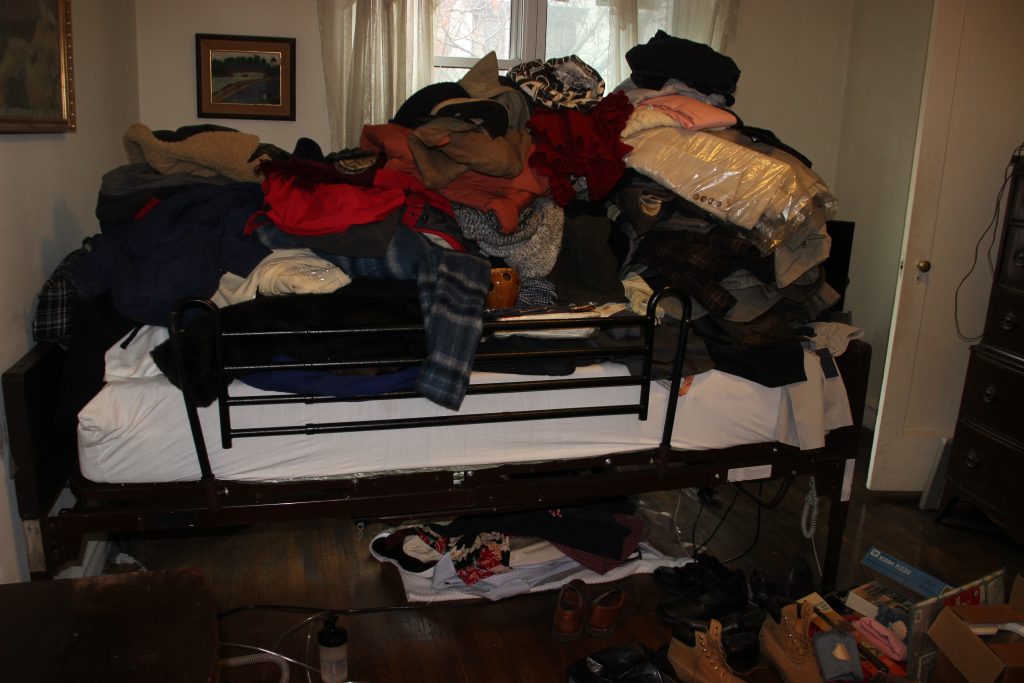
Excessive clutter is a personal saga about not being able to part with objects that are direct representations and constant reminders of a beloved person, an important event in your life, a gift/card/letter you received from someone you cared about, an old board game that the family gathered together to play, a childhood favorite toy/blanket/book, the box of recipe cards from grandma of tasty items that no one makes or wants to eat anymore, the dress you wore to the prom, the plastic top of the wedding cake, hundreds of playbills, old-time magazines from the ’50s thru who knows when stacked in the corner of a closet, old passports, stained and faded baby clothes, books ranging from old encyclopedias to college textbooks, notebooks from high school… The list goes on forever. And we haven’t even delved into the attic, basement, or garage.
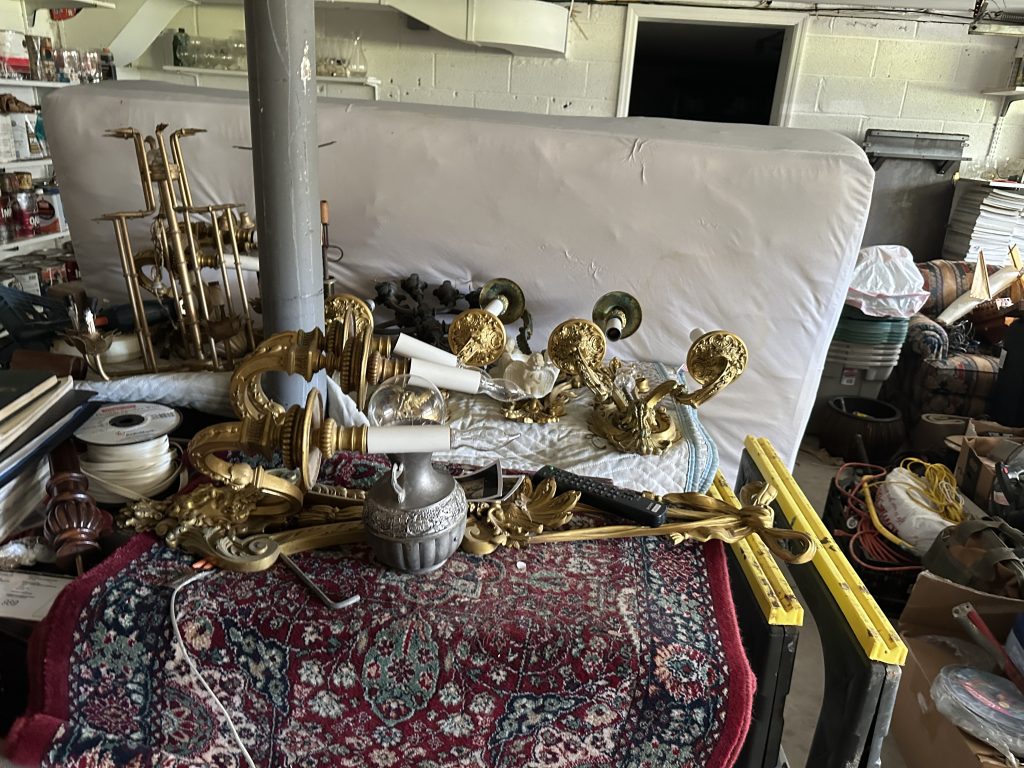
In the case of a residential move, especially if the client is downsizing a bit, the clutter needs to be triaged. This is a highly emotional problem for those clients that have held onto great grandma’s photos of generations past of people no one recognizes or knows, an adult child’s college sweater, a chandelier (with missing crystals) from 3 homes ago in a style the client will never live with again, a junk drawer in every room with items you might need, somethings that are perfectly good that someone somewhere might be able to use one day. The cost of packing and moving all the old clutter is high. Moving to a larger space to accommodate the clutter is highly ridiculous. And so – what to do?
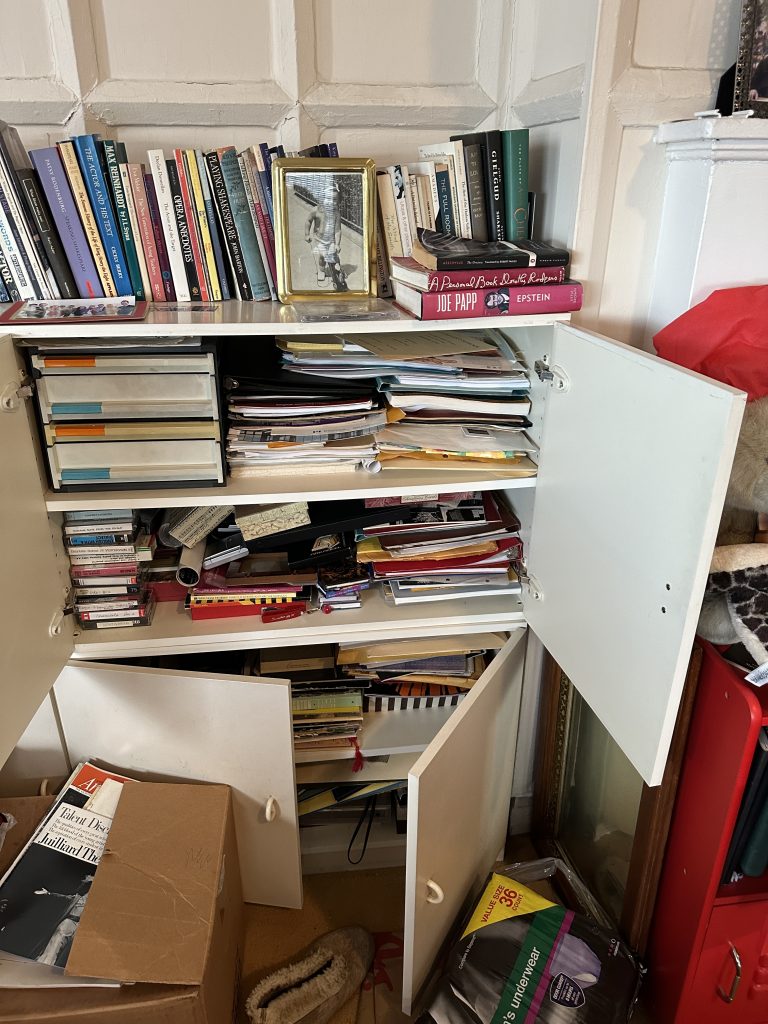
In the case of emptying the home of a loved one, where the home needs to be sold and the estate settled, the clutter can no longer linger in place. This is extraordinarily difficult for family members who are not ready to let go. The cost of packing and moving all the old clutter to a storage unit mounts every month as the charges for storage come in. Moving it all to a family member’s attic/basement/garage where it will linger for years and become a fire hazard is merely postponing the inevitable. And so- what to do?
I may have overly simplified the above, but the reality is that a lot of homes have a lot of emotional baggage in the form of “stuff you no longer need and no one in the family will ever use again.” If the thought of disposal is too hard to accept, there are alternative solutions. They take time and effort and not everyone is willing to undertake the work.
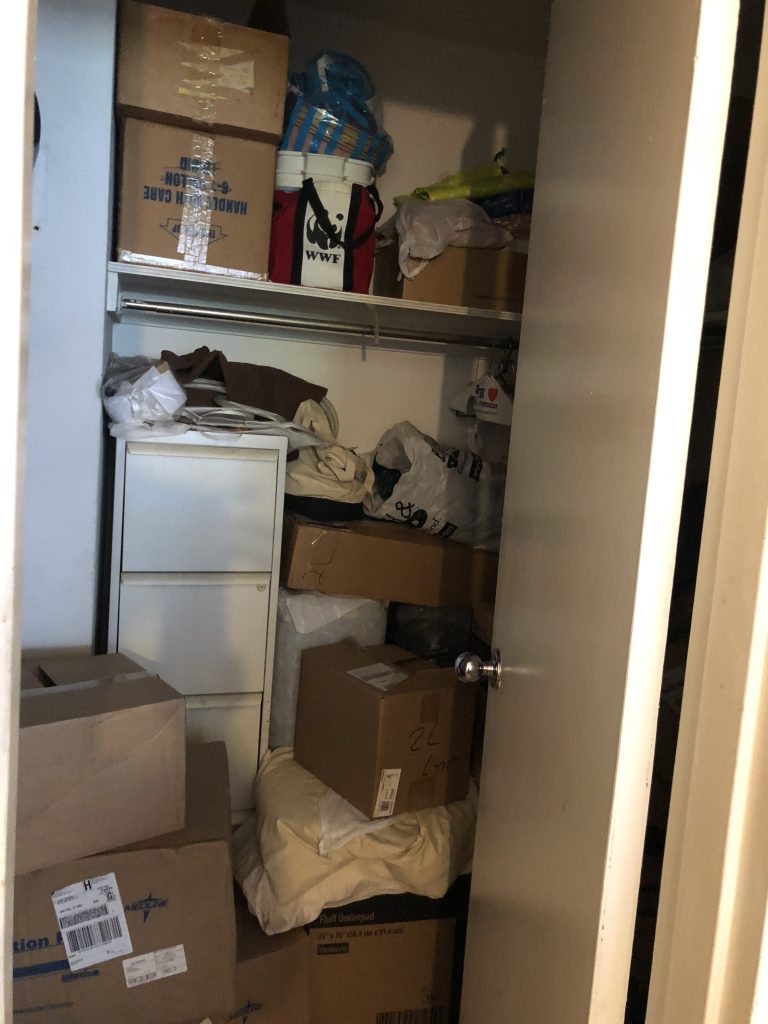
Here are some of my favorites:
- old tablecloths, towels, sheets and other assorted linen can be brought to any Humane Society where it will be well-used as bedding for the animals;
- furniture that is in good condition (clean upholstery, no chips/dings/deep scratches/loose legs) can be donated to a number of places. A few charities still pick up. In most cases, you will need to arrange to get the furniture to them;
- current clothing in good condition (no rips, stains, holes) can be brought to Good Will or dropped off in any of the many clothing donation boxes. Some churches distribute clothing to the needy if you are willing to drop it off at their facility;
- unopened adult diapers and other soft, disposable, medical supplies can be brought to senior centers and some not-for-profit assisted-living homes; and
- Lupus, Vietnam Vets, and other organizations will pick up small bundles of clothing that are bagged, books that are in book-sized boxes, etc. You need to schedule the pick-ups and you need to follow the guidelines of what they will take and how it is to be packed.
The above addresses a lot of the bulky items. What about all the paper – letters/photos/diplomas? There are some specialized services that will upload everything with key words so that family members can pull down customized albums from the cloud. There is also a service that provides you with everything you need to organize your photos, cards, letters etc. yourself.
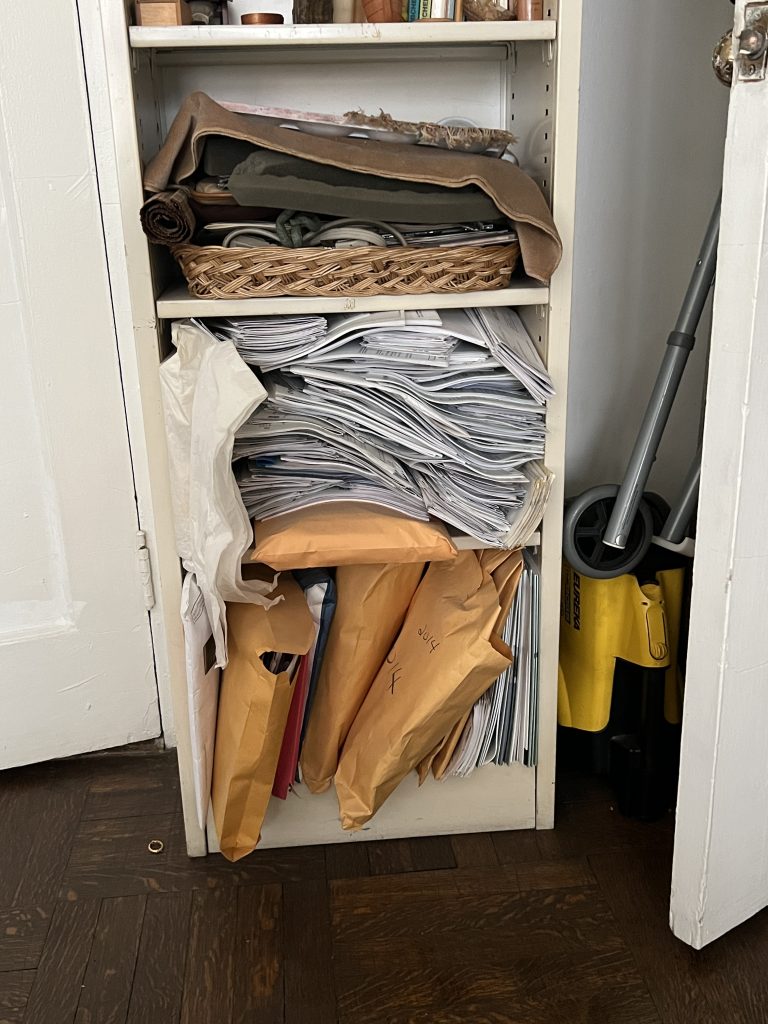
If you are interested in more information about donation options or digitization services, feel free to reach out to me.
In the play, “I Need That,” as with most of my clients who hold onto clutter, the issue is not a need for the stuff. It is an issue of not being able to move forward. The stuff ties them to a time and place in the past when they felt happy/loved/fulfilled/content/excited – whatever it was that they enjoyed. The stuff is what they believe they need in order to hold onto memories, to never forget. In truth, memories reside in our hearts and in our brains. A treasured memento or two is all you need. Something you can touch like a ring and something you can look at like a favorite photo. It is easier to move on with your life when you realize that your memories are within you and not confined to the guest bedroom.
Questions or comments? As always, feel free to contact me!
Best wishes,
Sharon
646-784-3073
www.360demenager.com

Recent Comments